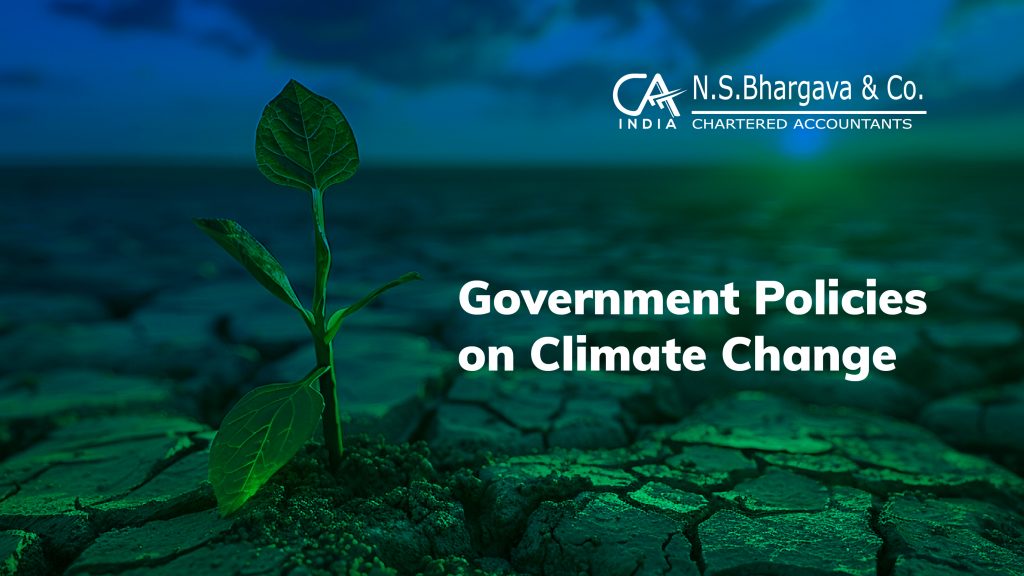
Climate change is one of the most pressing global challenges, and governments are at the forefront of efforts to address its impacts. Through policies, regulations, and international collaboration, governments aim to mitigate the effects of climate change and promote adaptation strategies.
National Climate Action Plans Governments develop and implement comprehensive climate action plans to address climate change at the national level. Key components include:
- Emission Reduction Targets: Setting targets for reducing greenhouse gas emissions, such as the net-zero by 2050 goals.
- Renewable Energy Promotion: Investing in and incentivizing the development of renewable energy sources.
- Energy Efficiency Programs: Implementing measures to improve energy efficiency in buildings, transportation, and industries.
Carbon Pricing Mechanisms Governments adopt carbon pricing mechanisms to incentivize emission reductions. Key approaches include:
- Carbon Taxes: Imposing taxes on carbon emissions to encourage businesses to reduce their carbon footprint.
- Cap-and-Trade Systems: Establishing markets where companies can buy and sell emission allowances under a capped limit.
Adaptation and Resilience Strategies Governments develop strategies to enhance resilience and adaptation to climate change impacts. Key initiatives include:
- Infrastructure Resilience: Upgrading infrastructure to withstand extreme weather events and rising sea levels.
- Agricultural Adaptation: Promoting climate-resilient agricultural practices to ensure food security.
- Disaster Risk Reduction: Implementing early warning systems and emergency preparedness plans.
International Climate Agreements Governments participate in international agreements to collectively address climate change. Key agreements include:
- Paris Agreement: Committing to limit global warming and enhance climate resilience through nationally determined contributions (NDCs).
- Kyoto Protocol: An earlier agreement focusing on reducing greenhouse gas emissions by developed countries.
Public Awareness and Education Governments play a role in raising public awareness about climate change and promoting sustainable practices. Key initiatives include:
- Climate Education Programs: Integrating climate change education into school curricula.
- Public Campaigns: Running campaigns to inform citizens about the impacts of climate change and actions they can take.
Governments are essential in the fight against climate change, implementing national action plans, carbon pricing mechanisms, adaptation strategies, and participating in international agreements. These efforts are vital for mitigating climate change impacts and building a sustainable future.
Key Insights
- National Climate Action Plans: Governments set emission reduction targets, promote renewable energy, and improve energy efficiency to combat climate change domestically.
- Carbon Pricing Mechanisms: Governments implement carbon taxes and cap-and-trade systems to incentivize businesses to reduce greenhouse gas emissions.
- Adaptation and Resilience Strategies: Governments enhance infrastructure resilience, promote climate-resilient agriculture, and implement disaster risk reduction measures to adapt to climate change impacts.
- International Climate Agreements: Governments commit to global climate goals through agreements like the Paris Agreement and the Kyoto Protocol, aiming for collective action on emissions reduction and resilience building.
- Public Awareness and Education: Governments integrate climate education into school curricula, run public campaigns, and promote sustainable practices to raise awareness and encourage action on climate change.
Way Forward
- Enhance Ambition: Strengthen emission reduction targets and renewable energy incentives to achieve net-zero emissions and transition to a low-carbon economy.
- Expand Carbon Pricing: Scale up carbon pricing mechanisms, improve market efficiency, and explore innovative approaches to drive deeper emission cuts across sectors.
- Invest in Adaptation: Increase investment in climate resilience for infrastructure, agriculture, and communities vulnerable to climate impacts, focusing on equity and inclusivity.
- Lead International Cooperation: Deepen collaboration in international climate negotiations, enhance NDC commitments, and foster partnerships for technology transfer and capacity building.
- Empower Public Engagement: Expand climate education, empower communities to participate in climate action planning, and amplify public awareness campaigns to mobilize support for climate policies.
- Monitor and Review: Establish robust monitoring frameworks, regularly review policy effectiveness, and ensure transparent reporting on progress towards climate goals to maintain accountability.